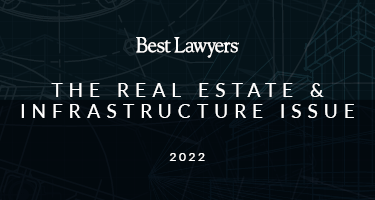Fifteen years ago, on Aug. 10 2005, the authors wrote an article for this newspaper titled “Self Help Evictions: The Neglected Commercial Remedy.” www.law.com/newyorklawjournal/almID/900005434523/selfhelp-evictions/. Since the publication of this article, it has been unanimous by all lower and appellate courts that self-help evictions are enforceable. As of the time of this writing, commercial judicial evictions are banned but extra-judicial evictions such as self-help are not only being used as an effective way to evict a commercial tenant but have been the only means since the pandemic started to garner a legal eviction.
This article addresses and updates the law on the self-help remedy 15 years later that enables commercial landlords to regain possession of leased premises from tenants in material breach of one or more lease covenants. As demonstrated below, courts continue to enforce its proper use, as it provides a useful and available means for landlords to regain immediate possession of rental property despite the pandemic and governmental moratoriums and court rules restricting the commencement of summary commercial eviction proceedings.
Limits on Government Power to Halt Evictions
Although the New York Governor’s executive orders prohibit “the initiation of a proceeding or enforcement of an eviction of any commercial tenant for nonpayment of rent,” Executive Order 202.28 issued May 7, 2020 (as further continued through January 8, 2021 by subsequent orders, including Executive Order 202.80, issued December 9, 2020), it is important that commercial landlords and their attorneys understand that the governor’s orders relate to evictions sought to be effected through judicial proceedings ONLY.
The governor’s orders imposing the moratorium on initiation of commercial eviction proceedings rest on the authority given him, under Section 29-a of Article 2-B of the Executive Law “to temporarily suspend any statute, local law, ordinance, or orders, rules or regulations, or parts thereof, [such as Article 7 of the Real Property and Proceedings Law which governs the initiation and conduct of summary proceedings to recover possession of real property] during a state disaster emergency,” including “epidemics.” (Emphasis added). Accordingly, Executive Law, Section 29-a, does not provide the governor with authority to prohibit, alter, or suspend the non-judicial, contractual self-help remedies included in commercial leases.
The limitations that exist on the governor’s authority to issue executive orders affecting the landlord-tenant relationship is well illustrated by the recent decision in Schack Collective Inc. v. DeKalb Market Hall, LLC., 63 Misc.2d 1202(A), 130 NYS3d 925 (Table)(NY City Civil Ct., Oct. 2, 2020). The petitioner, a licensee of three commercial spaces within respondent’s market, failed to comply with its license obligation to “maintain at the Licensed Area a Restaurant Letter Grading grade of ‘A’—receiving a Restaurant Letter Grade ‘C’ grade in two separate inspections of the leased space, in September and October 2019.
Citing the violations issued by the NYC Health Department, on March 4, 2020, respondent-landlord, in accordance with the terms of the license, sent petitioner-tenant a seven-day notice of termination. Petitioner sought but was denied a Yellowstone injunction. In an order issued on July 6, 2020, the court held that respondent “had not presented any basis for why the termination clause should not be enforced as written.” The respondent then shut off the gas and electric to the space, the petitioner’s equipment was removed, and, the police escorted the petitioner off the premises.
In a subsequent proceeding brought on by an emergency order to show cause, the petitioner contended that respondent had wrongfully used self-help to remove petitioner and its equipment from the premises. The petitioner also contended that the respondent had “acted in contravention of the Governor’s Moratorium on evictions in effect during the COVID-19 pandemic.” The court disagreed, holding that:
The moratorium’s references to “non-payment” of rent or mortgage clearly establish that its purpose was to protect individuals experiencing financial hardship as a result of the COVID-19 pandemic. Here, the issue is not based on non-payment. Accordingly, the Governor’s moratorium does not apply. (Emphasis added).
While the court hearing the emergency order to show cause found that the agreement between petitioner and respondent was indeed a license, and not a lease, the court also held, as had the court that denied the Yellowstone injunction, that “[e]ven if petitioner could be deemed a tenant, it could not affect the court’s denial of this application.” The respondent’s use of self-help to re-enter and regain possession of the restaurant space was upheld on the basis of respondent’s contractual rights, and the governor’s moratorium did not override those rights.
In another recent case in which a landlord, represented by our law firm, used self-help to regain possession of leased space, the right to the use of contractual, non-judicial self-help during the pandemic was approved without any question, and without even a reference to the governor’s moratorium. The court held that “the parties’ lease expressly grants the landlord the right to re-enter upon a plaintiff’s breach of substantial obligations of tenancy or nonpayment of rent. It is well settled even were a court to determine self-help was not peaceable, a tenant is relegated only to a suit for damages, but not restoration of the subject premises where restoration would be futile because the landlord is entitled to seek judgment evicting the plaintiff.”
The Law of Self-Help
In light of such rulings, it is useful for practitioners representing commercial landlords to review the law applicable to self-help evictions, to be able to utilize this important legal tool, at a time when summary proceedings are either unavailable or otherwise delayed by government edict. In this respect, it is important to note that New York courts, at all levels, have found self-help evictions to be enforceable when done properly.
The decision in Sol de Ibiza, LLC v Panjo Realty, Inc., 29 Misc.3d 72, 911 NYS2d 567 (1st Dept., Appellate Term, 2010), sets forth the elements generally recognized as the basis for a proper commercial self-help eviction: (1) the subject lease specifically reserves the landlord’s right to re-enter the premises upon tenant’s breach of its obligation to pay rent, (2) prior to re-entry, landlord serves upon tenant a valid rent demand, (3) re-entry was effected peaceably, and (4) tenant was in fact in default in its obligation to pay rent. See also Bozewicz v Nash Metalware Co., 284 A.D.2d 288, 725 N.Y.S.2d 671 [2d. Dept. 2001); Matter of Lee v. Ho-Park, 16 AD3d 986 (3d Dept. 2005); Jovana Spaghetti House v. Heritage Co. of Massena, 189 A.D.2d 1041 (App. Div. 3rd Dept. 1993).
Reserving the Right to Re-enter in the Lease
It is clear that, if the lease does not reserve the right of the landlord to re-enter upon default in payment of rent or other material breach of the lease, use of self-help by the landlord is not only precluded, but it will be deemed a trespass. See N. Main Street Bagel Corp. v. Duncan, 6 AD3d 590, 775 NYS2d 362 (2d Dept. 2004), and will subject the landlord to treble damages under RPAPL §853 which provides:
If a person is disseized, ejected, or put out of real property in a forcible or unlawful manner, or, after he has been put out, is held and kept out by force or by putting him in fear of personal violence or by unlawful means, he is entitled to recover treble damages in an action therefore against the wrongdoer.
Moreover, given that RPAPL §853 includes evictions undertaken in an “unlawful manner” in addition to those executed by force, “treble damages can be sustained without a showing of physical force or violence in ejecting the tenant.” Matter of Lee v. Ho-Park, supra.
Serving a Valid Rent Demand
As explained in 542 Holding Corp. v. Prince Fashions, Inc., 46 A.D.3d 309 (App. Div. 1st Dept. 2007), citing Filmtrucks, Inc. v. Express Industries and Terminal Corp., 127 AD2d 509, 511 NYS2d 862 (1st Dept. 1987), “[t]he purpose of a notice to cure is to specifically apprise the tenant of claimed defaults in its obligations under the lease and of the forfeiture and termination of the lease if the claimed default is not cured within a set period of time.” Where such defaults include unpaid rent, a “proper demand for rent must fairly afford the tenant, at least, actual notice of the alleged amount due and of the period for which such claim is made. At a minimum, the landlord or his agent should clearly inform the tenant of the particular period for which a rent payment is allegedly in default and of the approximate good faith sum of rent assertedly due for each such period.” Schwartz v Weiss-Newell, 87 Misc 2d 558, 561, 386 NYS2d 191 (NYC Civil Court 1976).
Where the rent demand overstates the amount of rent owed, see 133 Plus 24 Sanford Ave. Realty Corp. v. Xiu Lan Ni, 57 Misc. 3d 158(A), 72 NYS3d 517 (2d Dept., Appellate Term, 2017), or fails to separate base rent and additional rent owed, see 542 Holding Corp. v. Prince Fashions, Inc., supra, the rent demand will be deemed invalid, and a subsequent self-help eviction will likewise be invalid.
Moreover, the rent demand must be served in accordance with the requirements of the lease. Some lease agreements require that tenants be notified of the default with an opportunity to cure; others may permit the landlord to terminate the lease automatically upon tenant’s breach. Failure to terminate the tenancy in accordance with the lease will result in a wrongful eviction. See Matter of Lee v. Ho-Park, supra; Stivers v. Brownell, 63 A.D.3d 1516, 881 NYS2d 239 (4th Dept. 2009).
The Tenant in Default
It is clear without question that, if the tenant is not in material breach of the lease, the landlord may not use self-help to regain possession of the leased premises. See, e.g., Sol de Ibiza, LLC v Panjo Realty, Inc., supra. If there is any possible question of whether or not the tenant is in default, self-help should definitely not be employed. Otherwise, as noted previously, the landlord is at risk of being held liable for trespass and for incurring treble damages awarded under RPAPL §853.
Peaceable Eviction
For a landlord’s entry to be “peaceable,” the action of eviction should not entail the use of any activity that is unusual and would tend to bring about a breach of the peace, such as “an entry with a strong hand, or a multitude of people, or in a riotous manner, or with personal violence, or with the threat and menace to life or limb, or under circumstances which would naturally inspire fear and lead one to apprehend danger or personal injury if he stood up in defense of his possession.” Fults v. Munro, 202 NY 34, 42 (1911).
In the absence of force that tends to breach the peace, hiring trucks and men and even a garbage company to evict a tenant does not constitute forcible entry. See Liberty Industrial Park Corp. v. Protective Packaging Corp., 71 Misc.2d 116, 335 NYS2d 333 (Special Term, Kings. Co., 1972), affirmed, 43 Ad2d 1020 351 NYS2d 944 (2d Dept. 1974). Even where police are called to escort the tenant off the property, the eviction is still deemed peaceable. See Shack Collective, Inc. v. DeKalb Market Hall, supra.
To ensure that the use of self-help is “peaceable,” the authors recommend that the landlord arrange for the re-entry to occur during late night/early morning hours when the tenant’s business is closed. The landlord’s agents should be certain that no one is present on the leased premises before entering. Upon re-entry, the landlord may change the locks or padlock the doors. To thwart any damage claims, (a) The entire re-entry operation should be videotaped, (b) all items of tenant property removed from the premises should be photographed and inventoried, and (c) the tenant’s property should then be placed in storage for a reasonable period of time, in accordance with a lease provision that contemplates such action in the event of an eviction.
Conclusion
Under the governor’s executive orders and related judicial administrative orders, landlords’ right to evict defaulting tenants through summary proceedings is severely restrained and limited. Nevertheless, those landlords, whose leases properly reserve the right to use self-help to lockout a defaulting tenant and re-enter the leased premises, may still exercise their contractual rights peaceably, and the courts will enforce their right to do so.
Adam Leitman Bailey is the founding partner of Adam Leitman Bailey, P.C. and John M. Desiderio is a partner of the firm’s real estate litigation group. Meaghan Hassan, a Hofstra law student and fall extern at the firm, assisted in the preparation of this article.

























